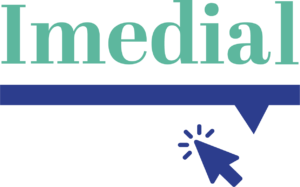Article by Inno Hub
Nowadays the internet and social media are two omnipresent media that are present in everyone’s professional and personal lives, bringing digital challenges and obstacles, such as excessive customizations of news feeds, search results and information flows, which could result in a severe problem when finding unbiased online information.
Social media has become a center of gravity for creating and spreading fake news, in which even more people fall in their tramp. It is important to create engaged and informed citizens, promoting critical thinking and active creation of content. Nevertheless, social media literary is not the unique problem or solution, because the online platform are spaces where disinformation, radicalization, cyberbullying and share of inappropriate content are spread easily and kind of enhanced by the social media users.
Therefore, these brings to the point that media literacy is mainly considered as the process or tool that is based on critical thinking, considered as the main point when facing the previously listed issues. Moreover, it is usually organized around five themes: youth participation, teacher training and curricular resources, parental support, policy initiatives, and evidence base construction. Nevertheless, even if programs like these have demonstrated positive outcomes, media literacy programs also have challenges that need to be faced in a particular manner and in many occasions education is not enough. It is important the society as a whole, to stand by the victims and collaborate and cooperate for dealing with such kind of problematic situations.
Social Media Literacy can be defined stating from UNESCO’s definition of Media and Information Literacy (MIL), which is:
‘’A set of competencies that empowers citizens to access, retrieve, understand, evaluate and use, create as well as share information and media content in all formats, using various tools, in a critical, ethical and effective way in order to participate and engage in personal professional and societal activities. This means that a ‘media and information literate person must not only be a consumer of information and media content, but also a responsible information seeker, knowledge creator and innovator, who is able to take advantage of a diverse range of information and communication tools and media.’’
It is important to improve the level of media literacy, because the information bases that the majority of the society have is limited to few relevant points but is lacking of information bases regarding relevant points such as economical and data extraction from the media industry, the control and decision-making over this industry and the way the flow of content that affects the society. Currently, the user could exercise much more control than the one he/she exercises by forming himself/herself in such areas, making the appropriate choices, and gaining control over the effects the social media exercises.
The IMEDIAL project aims to increasing MEDIA Literacy skills of adults to fight misinformation, fake news and cyberbullying with the focus on adult educators and learners from disadvantaged groups, with the main objectives of expanding and developing the skills and competencies of media education of adult educators, and by increasing the media literacy skills of adult learners (especially disadvantaged).

